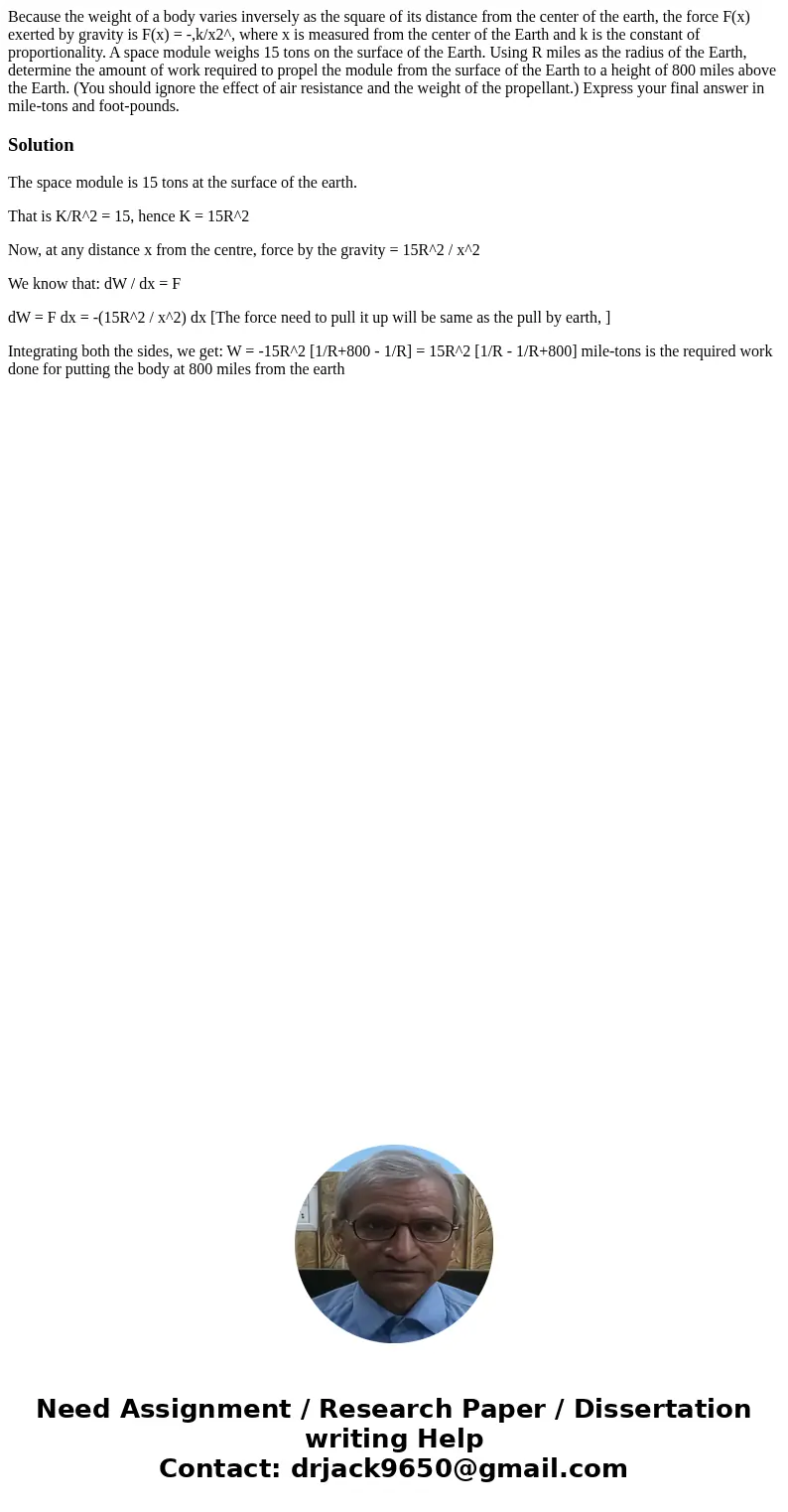Because the weight of a body varies inversely as the square
Because the weight of a body varies inversely as the square of its distance from the center of the earth, the force F(x) exerted by gravity is F(x) = -,k/x2^, where x is measured from the center of the Earth and k is the constant of proportionality. A space module weighs 15 tons on the surface of the Earth. Using R miles as the radius of the Earth, determine the amount of work required to propel the module from the surface of the Earth to a height of 800 miles above the Earth. (You should ignore the effect of air resistance and the weight of the propellant.) Express your final answer in mile-tons and foot-pounds.
Solution
The space module is 15 tons at the surface of the earth.
That is K/R^2 = 15, hence K = 15R^2
Now, at any distance x from the centre, force by the gravity = 15R^2 / x^2
We know that: dW / dx = F
dW = F dx = -(15R^2 / x^2) dx [The force need to pull it up will be same as the pull by earth, ]
Integrating both the sides, we get: W = -15R^2 [1/R+800 - 1/R] = 15R^2 [1/R - 1/R+800] mile-tons is the required work done for putting the body at 800 miles from the earth

 Homework Sourse
Homework Sourse